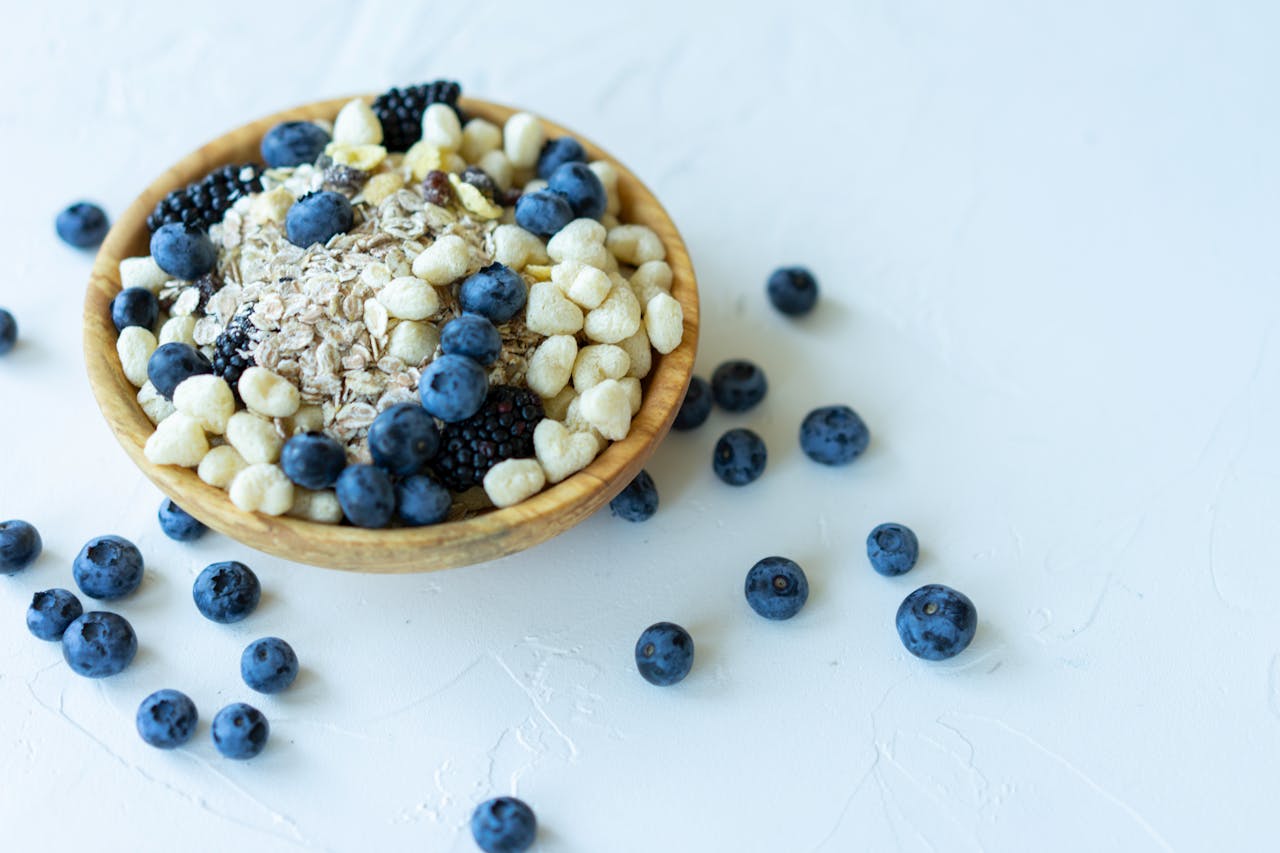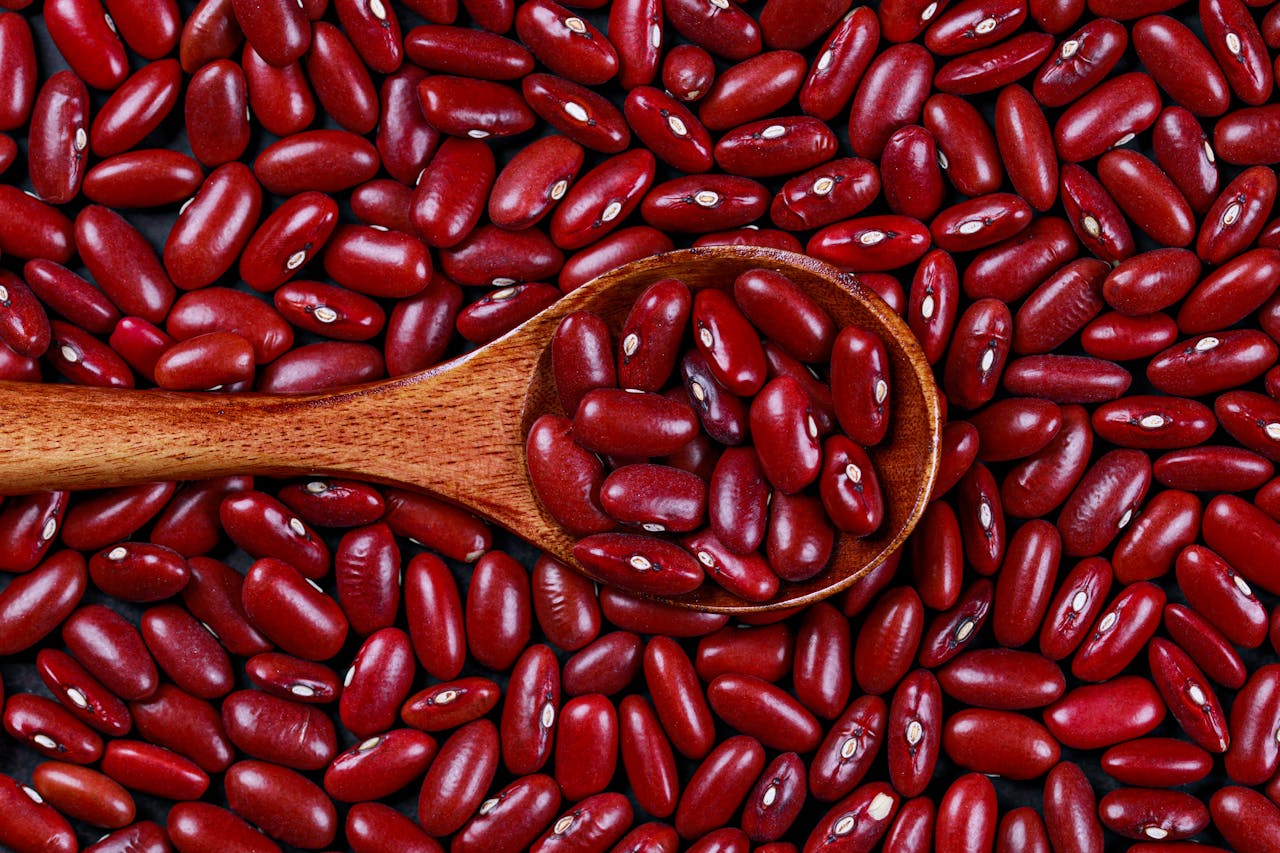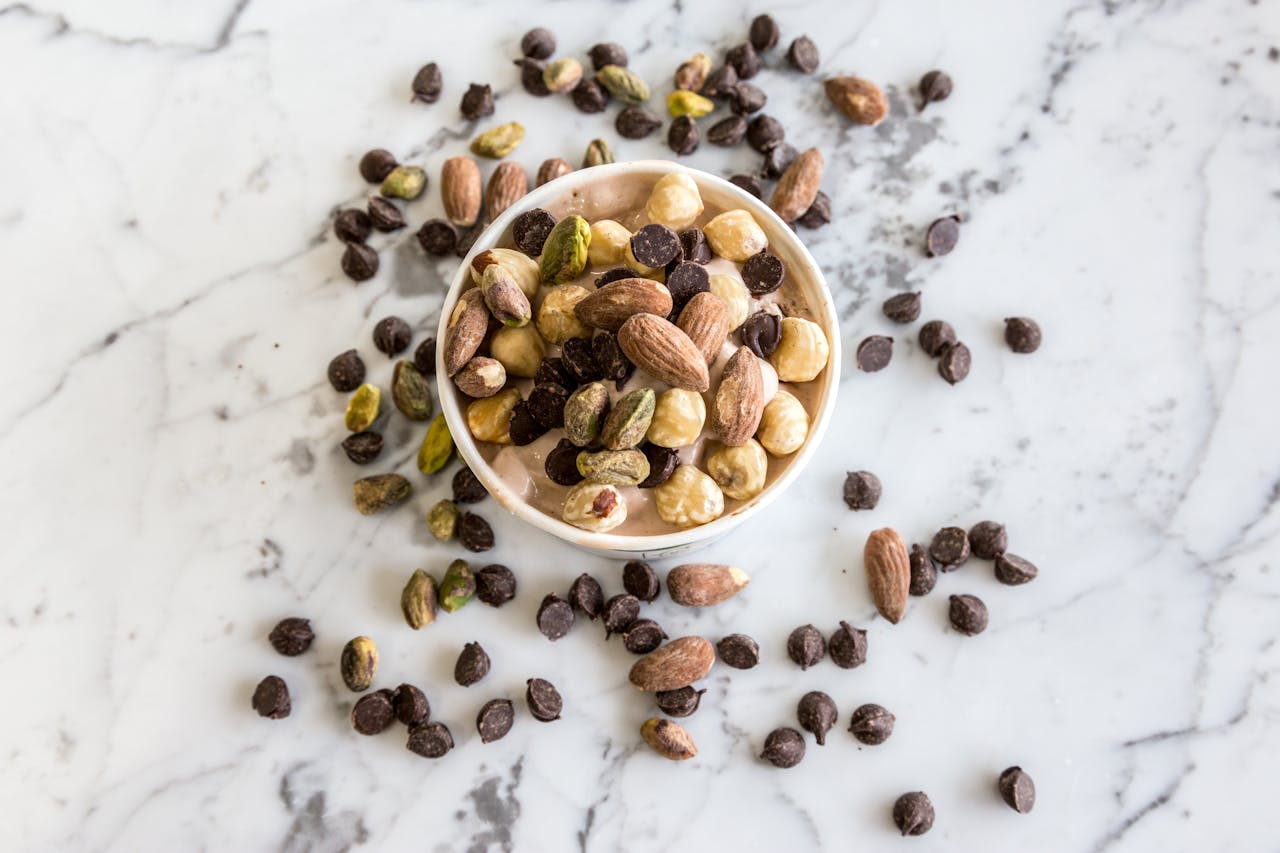
Photo by Engin Akyurt
Good: Fruits and Vegetables
Optimizing your diet for a healthy heart begins with colorful fruits and vegetables. These are rich sources of nutrients, low in calories and salt, essential for a balanced diet. The diversity of colors on the plate not only adds a pleasant visual aspect, but also a variety of health benefits.
Berries, full of fiber and plant nutrients, are a reliable ally in maintaining health. Green vegetables, such as kale, broccoli, and spinach, are excellent sources of vitamins C, E, and folic acid, essential for a strong immune system.
Last but not least, orange fruits and vegetables, such as carrots, sweet potatoes, and cantaloupe, are an excellent source of beta-carotene and fiber, contributing to healthy digestion and maintaining eye health.

Photo by Oleksandr P
Good: Whole Grains
Whole grains are an essential ally for heart health due to their numerous benefits. They are rich in fiber, which helps reduce cholesterol levels that can clog arteries. Additionally, the slow digestion of fiber keeps you feeling full for longer and helps control appetite. Whole grains are also an excellent source of B vitamins, which assist the heart in distributing oxygen throughout the body. Some examples of whole grains include oats, whole wheat, popcorn, and brown rice. To ensure you choose the right products, look for the words “whole grains” at the top of the ingredient list. Therefore, opt for whole grains to maintain a healthy heart and a balanced diet.

Photo by Victoria Bowers
Good: Beans
Beans are an essential food for heart health. Whether you prefer the kidney, lima, or pinto variety, they add a satisfying and valuable consistency to your meals. These colorful legumes provide your daily dose of protein, without the calories and fats associated with meat.
Including beans in a heart-healthy diet can help improve cholesterol levels. If you opt for canned beans for convenience, choose the no-salt versions or rinse them beforehand to reduce the sodium content.

Photo by Shameel mukkath
Good: Omega-3 Rich Fish
Omega-3 rich fish is an excellent alternative to meat for a healthy diet. Omega-3 fatty acids, being unsaturated fats, have the ability to reduce inflammation that can damage arteries. Consuming two servings of fish per week can contribute to a slight decrease in blood pressure and reduce the risk of death from heart disease and cardiac arrest.
Opt for fish species that are rich in Omega-3, but with a low mercury content, such as salmon, sardines, pollock, and albacore tuna. Thus, not only will you improve your heart health, but you will also contribute to diversifying your diet with a quality protein source.

Photo by Андрей
Good: Healthy Oils
Healthy oils play a crucial role in food preparation. Replacing solid fats such as butter, margarine, lard, or tallow with vegetable oils can have a significant impact on heart health. Canola, olive, safflower, corn, and soybean oils are rich in monounsaturated fatty acids, which are beneficial for cardiovascular health.
Choosing the right oil is not just about health benefits, but also about taste. Whether you choose to sauté, bake, or pan-fry, these oils add a distinct note to your culinary preparations.
However, avoid deep frying, which adds unwanted calories and fats. Therefore, choose healthy oils to keep your heart in optimal shape and to improve your lifestyle.

Photo by David Disponett
Good: Nuts
Nuts are a satisfying snack that provides an excellent source of healthy fats, proteins, and nutrients. Incorporating them into your diet can contribute to lowering LDL cholesterol levels, also known as 'bad cholesterol'. Moreover, nuts have the property of reducing inflammation in the body.
Regular consumption of nuts, a few times a week, can decrease the risk of heart attack or death caused by heart disease. However, it is important to be aware of portion sizes - nuts are high in calories, so a large quantity can quickly add calories to your diet.

Photo by alleksana
Good: Herb Mixes
Herb mixes are an excellent alternative to traditional salt, which can increase blood pressure and overwork the heart. Replacing salt with herbs and spices such as curry, garlic, ginger, lemon, pepper, parsley, oregano, and thyme not only maintains the taste of foods but also adds a plus of health.
Using fresh herbs is always an excellent option, but pre-mixed spices from the supermarket can also be a good choice. However, it is important to pay attention to the sodium content, as many spice mixes may contain added salt.

Photo by Engin Akyurt
Good: Cheese, Butter, and Cream
Dairy products such as milk and yogurt are valuable additions to your diet, offering proteins, essential calcium for bone building, and vitamin D. However, the type of dairy product you choose has a significant impact on your health. Whole milk, ice cream, butter, and cream are rich in saturated fats, which can increase LDL cholesterol levels, harmful to the heart.
Opt for low-fat dairy products and plain yogurt, without added sugar, to benefit from essential nutrients without adding unwanted calories and fats. Also, limit cheese consumption to a small serving per day, to maintain a nutritional balance.

Photo by Fawzi
Bad: Salty Spices and Sauces
Commercial spices and sauces are often loaded with salt, which can have a negative impact on heart health. Among the biggest culprits are soy sauce, salad dressings, and spicy sauces. It is essential to check the salt content on the label before making a purchase.
There are low-sodium alternatives available on the market, but an even healthier option is to prepare your own salad toppings and sauces. You can use natural flavors, without salt, such as lemon, olive oil, and vinegar. Also, orange or pineapple juice can be an excellent marinade for poultry and fish.

Photo by Milan
Bad: Processed and Smoked Meat
Sausages, bacon, and hot dogs, with their high fat and cholesterol content, are not friends with your heart. These processed meats are smoked, salted, or impregnated with chemicals to preserve them. Both processed red meat and fatty meat, such as hamburgers, are harmful to your heart.
Fish, lean poultry, beans, and tofu are healthier sources of protein, which fit perfectly on a bun (whole grain, of course!). These alternatives not only provide you with the necessary proteins but also contribute to maintaining heart health.

Photo by Igor Ovsyannykov
Bad: Sweets
Sugary foods and drinks, such as biscuits, cakes, candies, and sodas, contribute to the increase in obesity rates, a major risk factor for heart health. Excessive sugar consumption can lead to an increase in blood sugar levels and inflammation, which may explain why people who consume too many sweets face a higher risk of dying from heart disease.
How much sugar is considered safe? The American Heart Association recommends that women should not consume more than 6 teaspoons, and men no more than 9 teaspoons of added sugar per day. Therefore, it is essential to monitor and limit sugar consumption to keep our heart healthy.

Photo by Ruslan Khmelevsky
Bad: Fried Foods
Fried foods, such as potatoes or chicken, can add fats and cholesterol to your diet, which is not beneficial for the heart. Regular consumption of such foods can lead to weight gain, which can increase blood pressure. Studies show that fried foods can increase the risk of heart disease and heart failure.
Instead, opt for healthier cooking methods, such as baking, roasting, browning, or pan-frying vegetables and lean proteins, like chicken and fish. Not only are these heart-healthy, but they also provide a delicious meal.

Photo by PhotoMIX Company
Bad: Alcohol
Alcohol adds 'empty' calories to your diet, contributing to weight gain without providing any nutritional benefit. Moreover, alcohol can negatively interact with some blood pressure medications and other heart treatments, which can have serious consequences for your health. Therefore, it is essential to consume alcohol in moderation and be aware of its potential effects on your health.

Photo by Pixabay
Bad: Excess Fluid
Heart failure is a medical condition where the heart is no longer able to pump blood efficiently. This can lead to fluid accumulation in the body, which can cause symptoms such as swelling and difficulty breathing.
Excessive consumption of water and other fluids can exacerbate these symptoms, as it can lead to weight gain and additional fluid accumulation. Therefore, it is essential to discuss with your doctor the optimal amount of fluid you should consume each day.
In addition, it is important to be aware that certain foods, such as soups, fruits, and frozen foods, can contain significant amounts of fluid. Therefore, these should be taken into account when calculating your daily fluid intake.
Keeping a record of the amount of fluid you consume each day can also be a useful tool for managing the symptoms of heart failure. This can help you monitor your fluid consumption and adjust your diet accordingly.
Sorces:
- Medically Reviewed by James Beckerman, MD, FACC | Written by Stephanie Watson - Original article